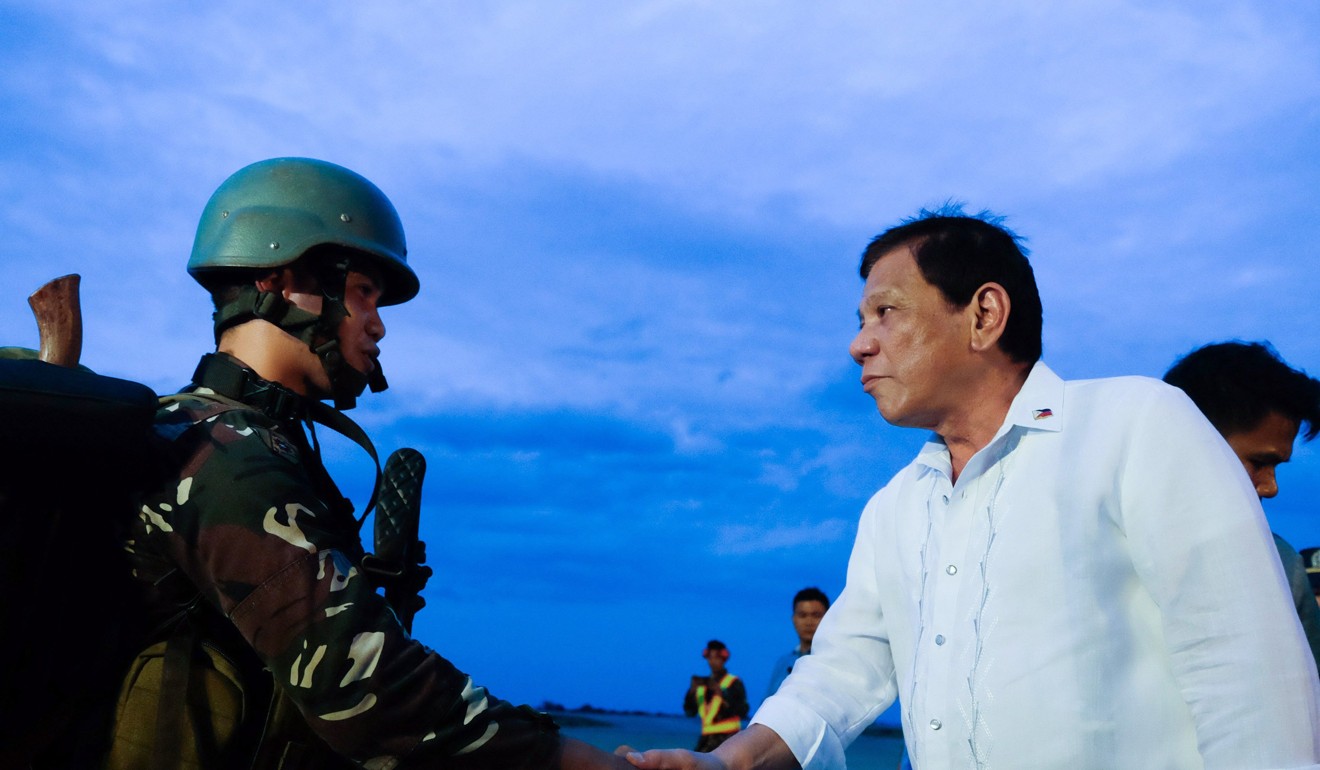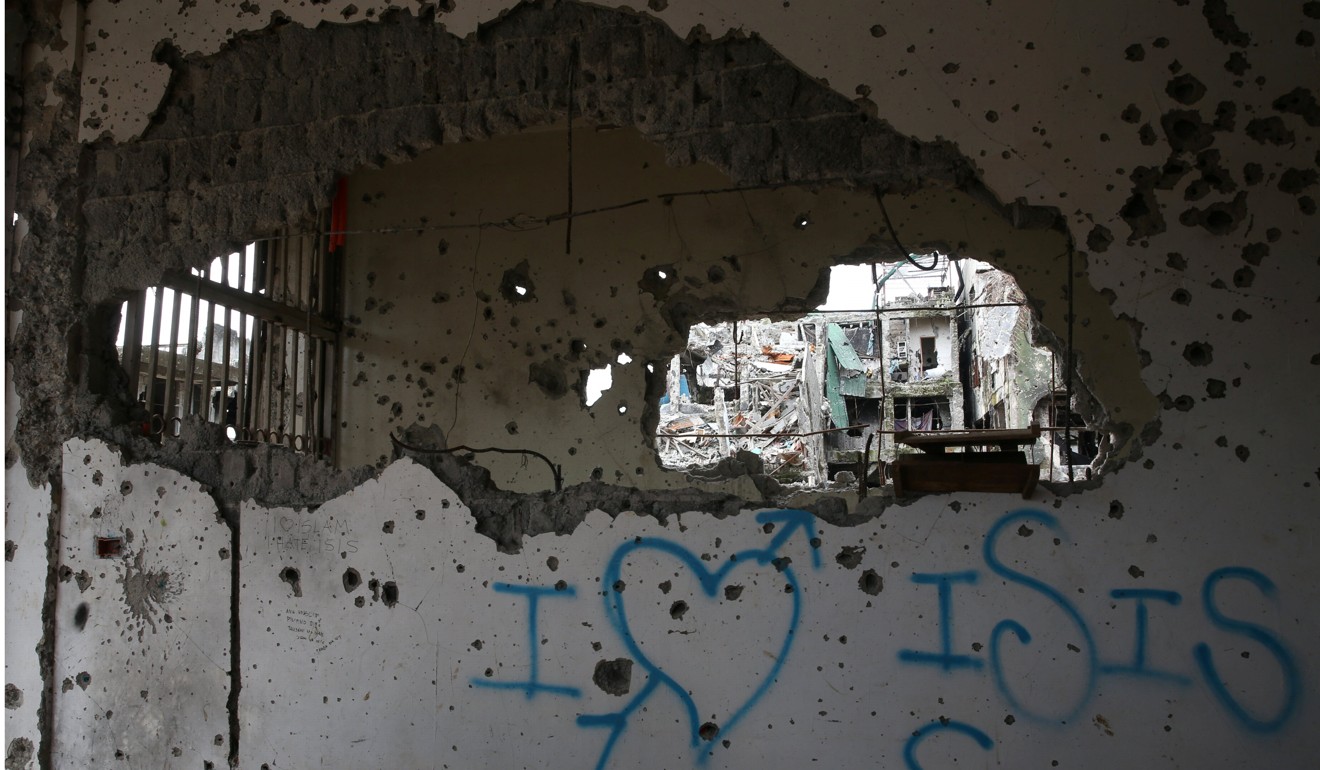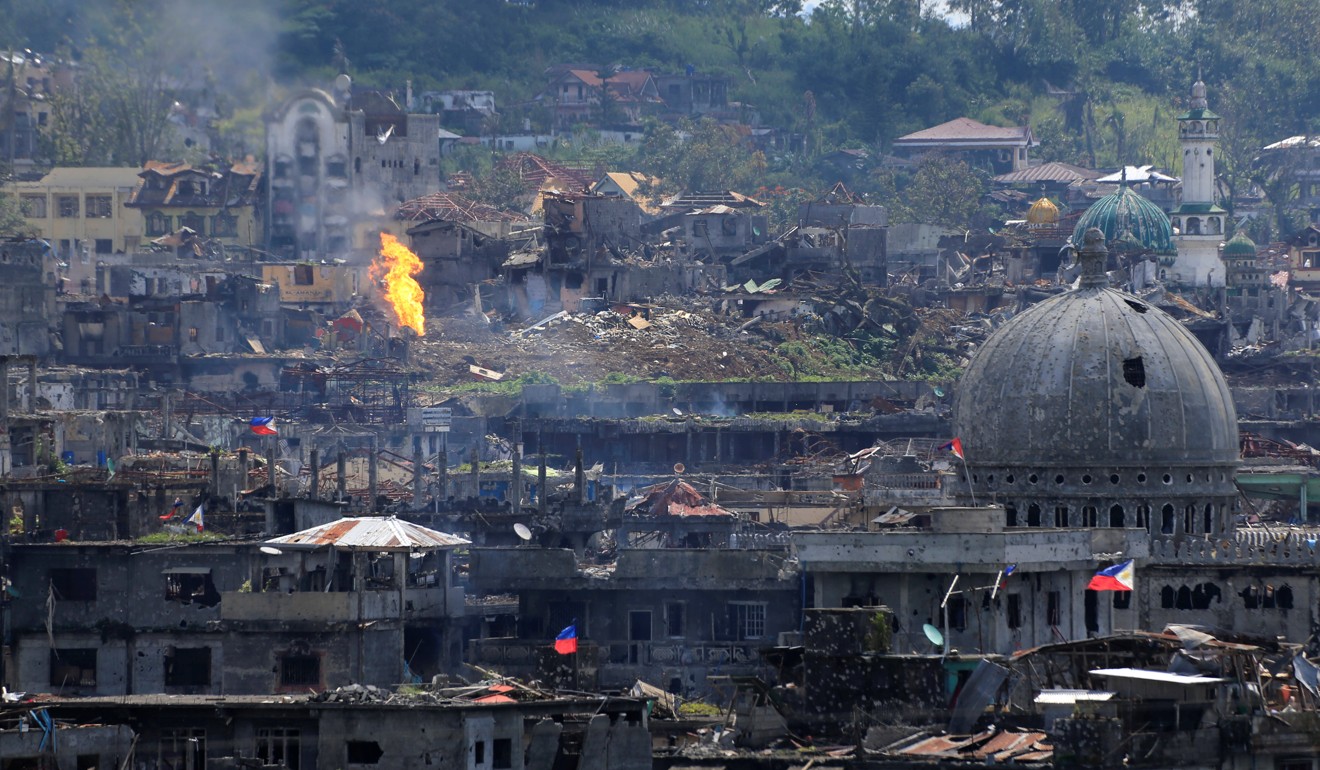
China has key role to play as Duterte tries to build on victory over Islamic State
The victory of the Philippine armed forces over the militants in Marawi was built on support from a wide range of allies. Winning the peace will require a similar effort
The longest and bloodiest conflict in modern Philippine history has finally come to an end. After five months of intensive clashes between government troops and Islamic State-affiliated militants, the city of Marawi has finally been liberated and their leaders neutralised.
This marks a major setback for extremist groups in southern Philippine island of Mindanao, a potential site for the IS command’s next wilayat or governorate.
For now, the prospect of a distant caliphate in Southeast Asia has been contained. President Rodrigo Duterte, however, faces the daunting task of pre-empting terrorist plots by remnants of the IS-affiliated movement, reconstructing a heavily devastated Marawi, and restarting peace negotiations with major rebel groups.
To achieve these objectives, he will have to continue soliciting much-needed external assistance. This could come from traditional allies, particularly the United States and Australia, but also China, his new strategic partners.
So far Beijing has provided more than US$1 million for the treatment of injured soldiers and about US$14 million in defence equipment.
The Duterte administration has been in a triumphant mode of late.
The military forces managed to kill as many as 800 militants, including Isnilon Hapilon, the designated emir of IS in Southeast Asia, and Omar Maute, the military commander who oversaw Marawi’s siege and fought to the bitter end.
Omar’s brother, Abdullah, was reportedly killed in September.
Prominent foreign fighters, such as Mahmud bin Ahmad, the Malaysian conduit between the IS leadership and Filipino extremists, were also killed.
For now, the government is focused on fully eliminating the presence of foreign elements, who were bent on turning Marawi into a regional jihadist hub.

Yet, the fact remains that few hundred militants managed to hold onto the country’s largest Muslim-majority city for almost 150 days.
One reason was the relative inexperience of the Philippine military in full-scale urban warfare, with the militants using a potent cocktail of underground tunnels, Improvised Explosive Devices (IEDs), pre-positioned weapons depots and highly skilled marksmen.
As a result, Duterte had to seek direct support from Washington, which provided surveillance aircraft, real-time intelligence, and Special Forces training.
The other reason was the expressed intent of the Christian-majority military to avoid damaging sacred Muslim sites and saving hostages held by the militants.
In the end, the government managed to avoid damaging major mosques and were able to save up to 1,700 hostages, thanks to a carefully executed encirclement strategy.

For sure, dreams of an IS wilayat are far from extinguished. Extremist groups in the Philippines have proven highly resilient over the decades. Furuji Indama is expected to take over the IS-affiliated movement in Mindanao, but it is doubtful whether he can mobilise the same lethal coalition that Hapilon deftly managed to construct.
But in coming months, other IS-affiliated groups outside Marawi is likely to try to prove they are still alive and kicking. There are serious risks of so-called “spectacular terror attacks”, especially against high-value targets and major urban centres.
In Manila, there has been extensive precautionary security preparations, as the country prepares to host one of the biggest diplomatic confabs of the year.
The Philippines will be hosting global leaders, including the US President Donald Trump and Japan’s Prime Minister Shinzo Abe, for the Association of Southeast Asian Nations (Asean) summit in mid-November.
Duterte is intent on maintaining the state of martial law in Mindanao and step up an ongoing nationwide crackdown on extremist sleeper cells.
The biggest challenges, however, are non-military in nature.
The government faces the perplexing challenge of reintegrating up to 600,000 displaced residents of Marawi, which has been reduced to rubbles. It also needs to rekindle deadlocked peace negotiations with the Moro Islamic Liberation Front.

Otherwise, a new legion of disgruntled rebels and displaced residents could end up joining new emerging extremist groups, thereby starting a new cycle of violence.
Western allies have offered continued assistance in counterterrorism operations, but greater resources should be committed to Marawi’s reconstruction (the estimated cost will be up to US$1 billion) and ensuring the peace process moves in a positive direction.
China, in particular, has emerged as a potential partner to this end, promising to “continue providing needed support and assistance,” especially “in the post-war settlement and reconstruction of Marawi.”
So far, it has offered US$3 million worth of heavy equipment for the devastated city’s reconstruction. Major Chinese companies could also play a role in rebuilding the city’s public infrastructure with considerable speed and efficiency.
Beijing is set to lead the way in integrating Mindanao via a modern railway project, an indispensable step towards lifting troubled regions out of extreme poverty that fuels extremism.
Duterte failed to prevent the brutal siege of Marawi, but he ultimately managed to nip the emerging wilayat in the bud.
He also skilfully assembled a broad coalition of great powers, from America and Russia to China, who have offered full-spectrum counterterror assistance. Yet the fight against extremism is far from over.
Richard Heydarian is a Manila-based academic and author of Rise of Duterte: A Populist Revolt against Elite Democracy

